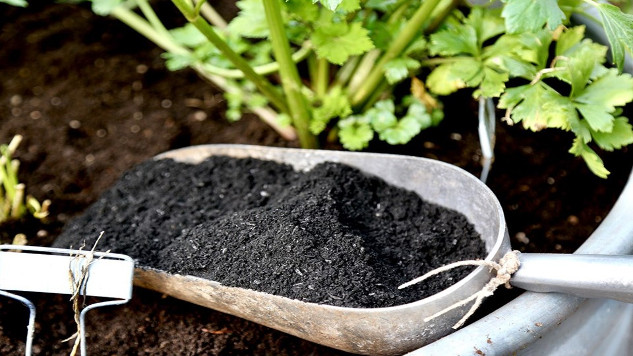
In the face of escalating agricultural challenges, including soil degradation and the pressing need for sustainable practices, scientists are turning to ancient solutions with a modern twist. One such promising solution is biochar, a substance with roots in antiquity, now being reevaluated for its potential in large-scale agriculture and home gardening. This resurgence is primarily attributed to a recent study by Amit Dhingra, highlighting biochar's significant benefits in enhancing soil health and promoting sustainable cultivation practices.
What is Biochar?
Biochar, essentially a form of charcoal, is made from biomass through a process called pyrolysis. Historically, ancient civilizations like those in the Amazon used biochar to enrich their soils. Today's biochar is similar but is produced using modern technology, ensuring consistency and efficiency. Its fine-grained, highly porous nature makes it an ideal amendment for soil, improving water retention, nutrient availability, and microbial activity. This ancient practice, now refined, is a boon for modern agriculture and home gardens alike, offering a sustainable way to nurture plants.
Dhingra's study shed light on biochar's impact on soil and plant health. Using wheat crop residue-derived biochar; the research team conducted experiments demonstrating significant soil microbiome improvements. The study found that biochar enhanced plant root interactions with beneficial microorganisms in the soil, a finding particularly relevant for areas with diverse soil types, such as Texas. This discovery is crucial for large-scale agriculture and home gardeners who deal with various soil conditions.
Using Biochar in the Home Garden
The versatility of biochar in horticultural systems cannot be overstated. Its ability to adapt to different soil types makes it an invaluable tool for enhancing soil health in various horticultural settings, including home gardens. Home gardeners can particularly benefit from biochar's capacity to improve soil fertility and structure, making it easier to grow a wide range of plants in otherwise challenging soil conditions.
Apart from enhancing soil fertility, biochar offers significant environmental benefits. It aids in long-term carbon sequestration, helping to mitigate climate change. Additionally, its use reduces soil acidification and enhances water and nutrient exchange, contributing to more sustainable agricultural practices. These benefits appeal to environmentally conscious home gardeners looking to reduce their carbon footprint and promote eco-friendly gardening practices.
Biochar offers home gardeners a simple yet effective way to enhance soil quality and plant health. Its porous nature improves soil aeration and water retention, which is especially beneficial for container gardening in regions with sandy or clay-heavy soils. Adding biochar to garden beds can increase plant nutrient availability, leading to healthier, more vigorous growth. It's beneficial for organic gardeners, as it can help reduce the need for chemical fertilizers while providing a habitat for beneficial soil microbes.
Easy to incorporate into existing garden routines, biochar can be mixed with compost or directly added to soil. Its long-lasting effects mean gardeners can enjoy its benefits for several years, making it a cost-effective and environmentally friendly addition to any home garden. Whether growing vegetables, fruits, or ornamental plants, biochar can significantly contribute to a more productive and sustainable home gardening experience.
Insights from the Tomato Growth Experiment
The study's experiment with tomato plants provided more profound insights into biochar's effectiveness. The researchers observed notable improvements in root development, microbial activity, and plant health in biochar-treated soil. Most importantly, biochar influences gene expression in plants and soil microbes, enhancing their interaction and, consequently, the plants' health and resilience. These findings are encouraging for home gardeners, suggesting that biochar can significantly improve the health and yield of garden crops.
While the study's results are promising, further research is needed to optimize biochar's application in different scenarios. Understanding its impact on various crops and soil types will be crucial, particularly for tailoring its use in home gardens. Biochar's potential role in global food production is significant. As we face the challenge of producing more food with less land, biochar could be a key player in ensuring every inch of land, including small-scale home gardens, remains highly productive and sustainable.
With its ancient roots and modern applications, biochar is a multifaceted solution to many of today's agricultural and environmental challenges. Its ability to improve soil health, enhance plant growth, and contribute to sustainable practices makes it an invaluable tool for large-scale agriculture and home gardeners. As we continue exploring biochar's full potential, its role in transforming commercial agriculture and home gardening into more sustainable, productive, and environmentally friendly practices becomes increasingly apparent. Embracing biochar could be a significant step towards a greener, more sustainable future in food production and beyond.



























